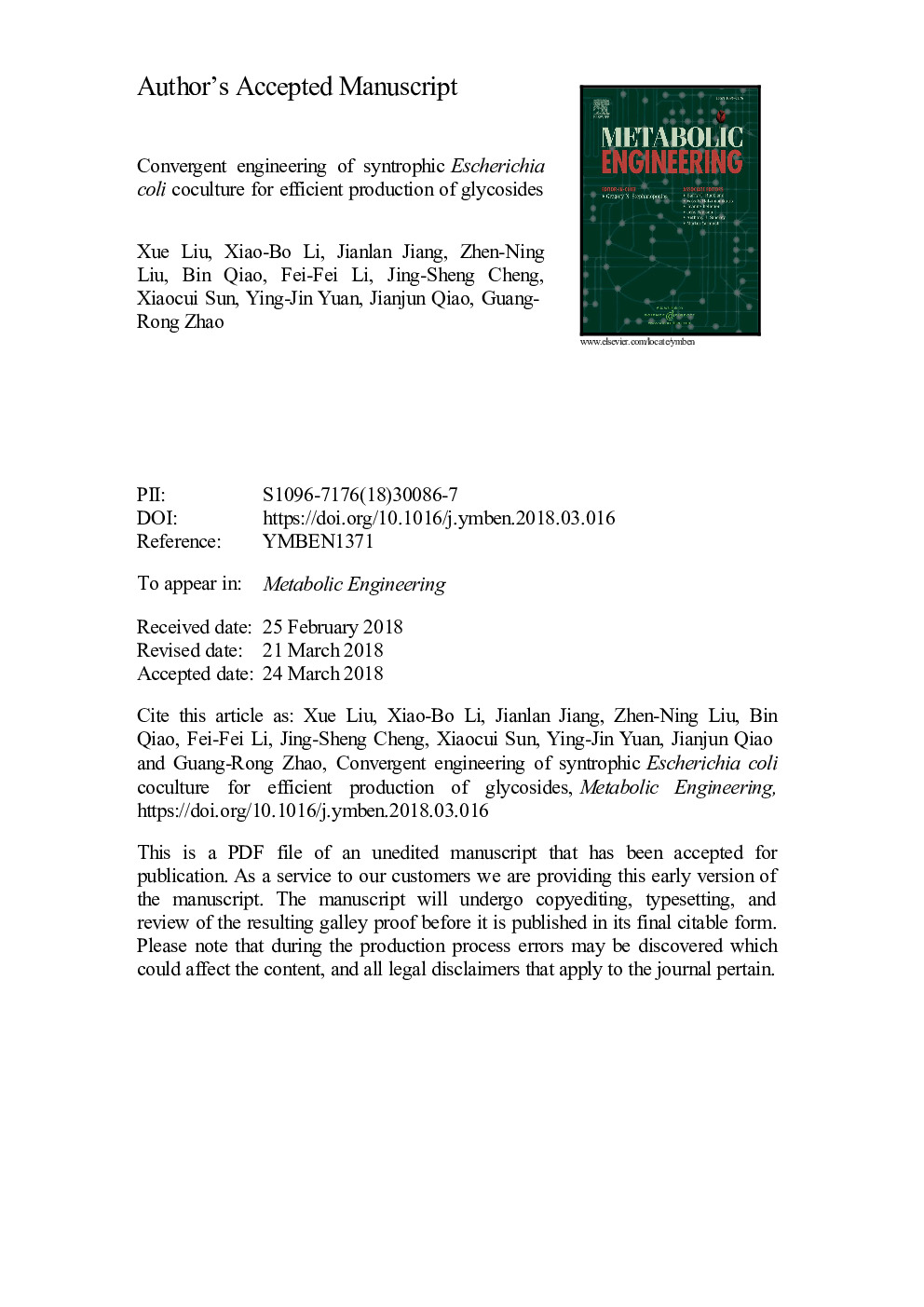| Article ID | Journal | Published Year | Pages | File Type |
|---|---|---|---|---|
| 6494083 | Metabolic Engineering | 2018 | 42 Pages |
Abstract
Synthetic microbial coculture to express heterologous biosynthetic pathway for de novo production of medicinal ingredients is an emerging strategy for metabolic engineering and synthetic biology. Here, taking efficient production of salidroside as an example of glycosides, we design and construct a syntrophic Escherichia coli-E. coli coculture composed of the aglycone (AG) strain and the glycoside (GD) strain, which convergently accommodate biosynthetic pathways of tyrosol and salidroside, respectively. To accomplish this the phenylalanine-deficient AG strain was engineered to utilize xylose preferentially and to overproduce precursor tyrosol, while the tyrosine-deficient GD strain was constructed to consume glucose exclusively and to enhance another precursor UDP-glucose availability for synthesis of salidroside. The AG and GD strains in the synthetic consortium are obligatory cooperators through crossfeeding of tyrosine and phenylalanine and compatible in glucose and xylose mixture. Through balancing the metabolic pathway strength, we show that the syntrophic coculture was robust and stable, and produced 6.03â¯g/L of salidroside. It was the de novo production of salidroside for the first time in E. coli coculture system, which would be applicable for production of other important glycosides and natural products.
Keywords
Related Topics
Physical Sciences and Engineering
Chemical Engineering
Bioengineering
Authors
Xue Liu, Xiao-Bo Li, Jianlan Jiang, Zhen-Ning Liu, Bin Qiao, Fei-Fei Li, Jing-Sheng Cheng, Xiaocui Sun, Ying-Jin Yuan, Jianjun Qiao, Guang-Rong Zhao,
